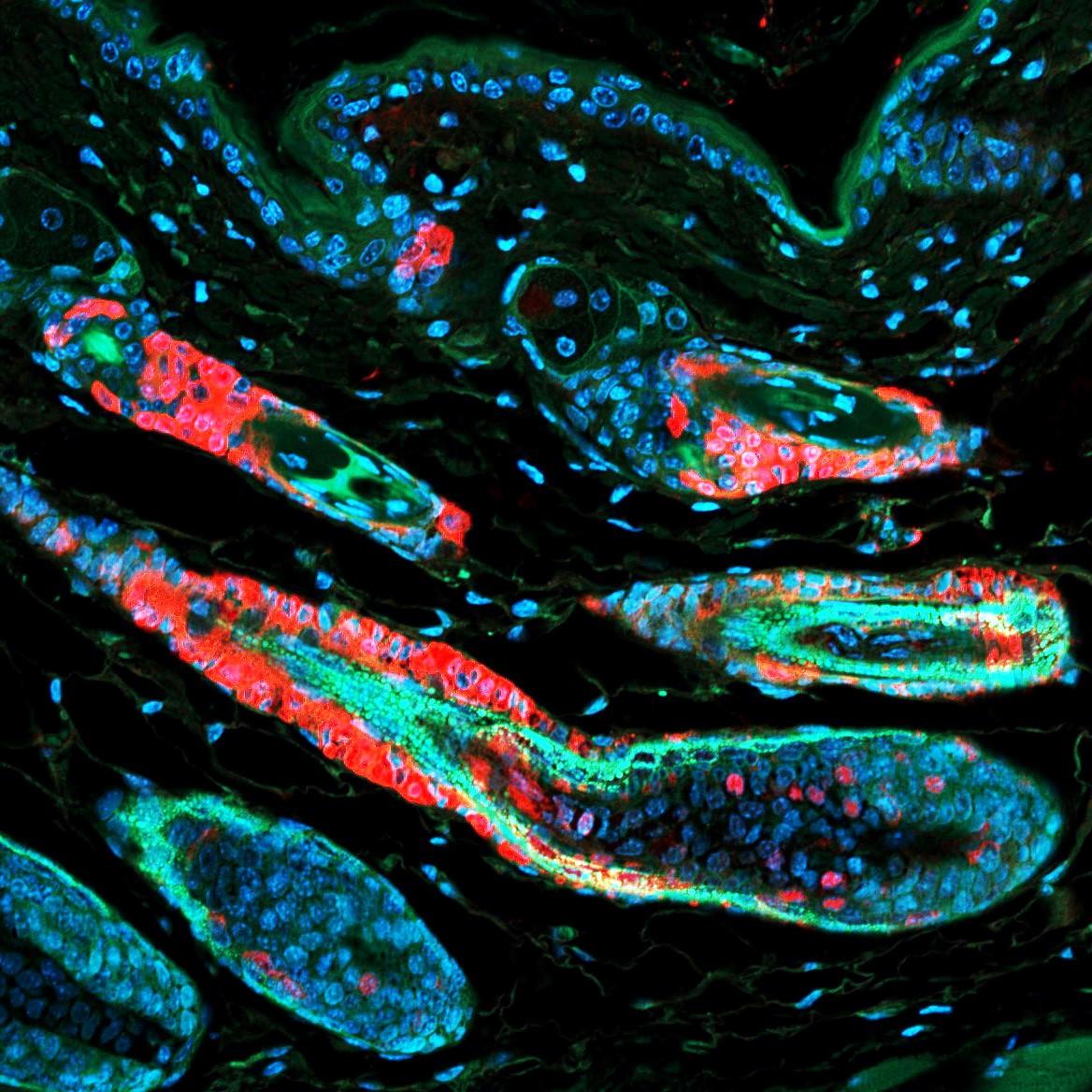
Submitted by Administrator on Wed, 16/11/2016 - 17:13
New article from the Frye Lab published in Nature
Elevated protein synthesis and increased cell division rates are key physiological tasks for cancer cells and the protein translation machinery emerged as promising therapeutic target to control tumour growth. However, our study reveals that skin stem cells in both normal tissues and tumours synthesize less protein than their differentiating daughter cells, independent of cell division rate. The low global protein synthesis is functionally relevant because repressing global protein synthesis by activating cellular stress response pathways promotes both stem cell functions and tumourigenesis. Unexpectedly, this selective repression of protein synthesis renders tumour-initiating cells highly sensitive to chemotherapeutic drugs.
Publication details:
Blanco S, Bandiera R, Popis M, Hussain S, Lombard P, Aleksic J, Sajini A, Tanna H, Cortés-Garrido R, Gkatza N, Dietmann S, Frye M. Stem cell function and stress response are controlled by protein synthesis. Nature. 2016 Jun 15;534(7607):335-40. doi: 10.1038/nature18282. PMID: 27306184

